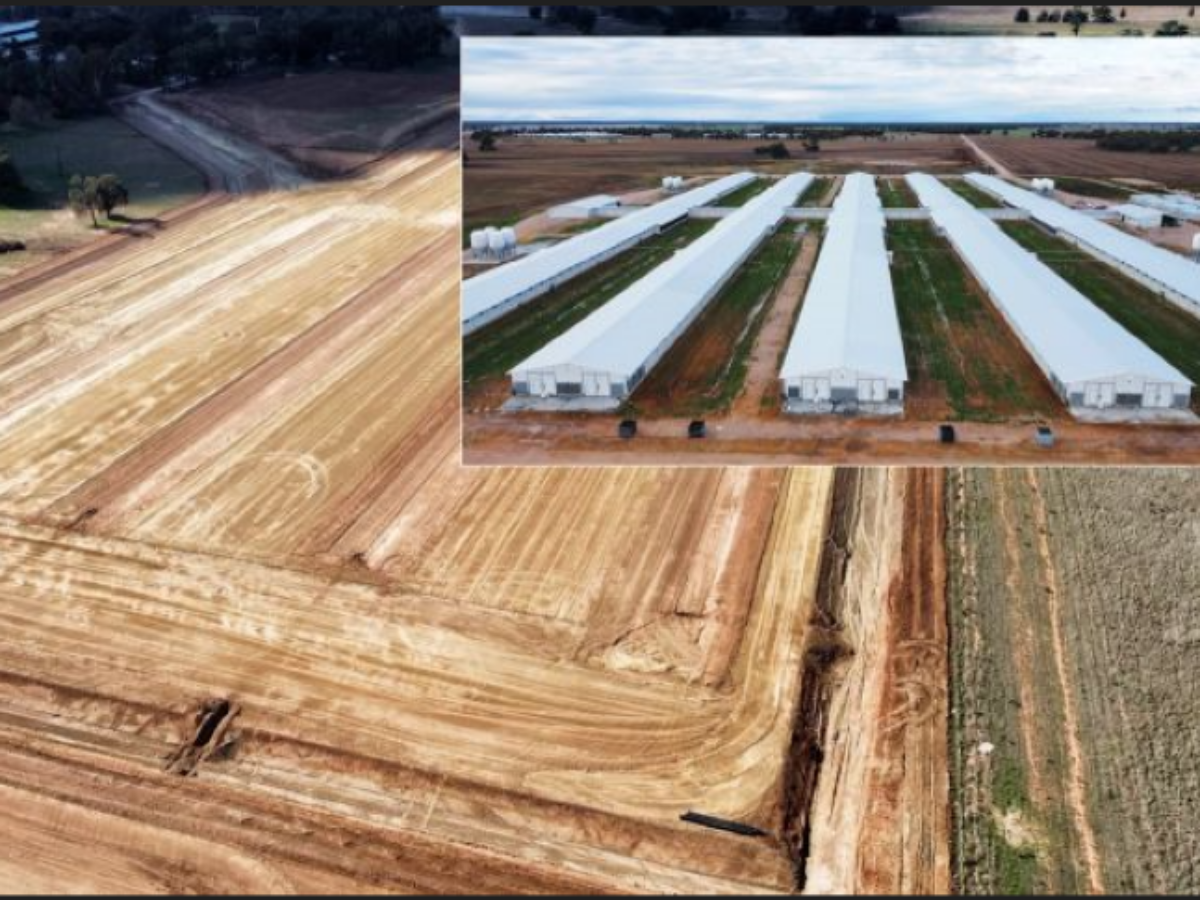Baiada Poultry cracks on to R&D and automation

Leading egg and poultry meat producer Baiada Poultry is going automated as it increases its presence in the Riverina region of New South Wales.
The company, which includes the well known Lilydale Free Range and Steggles brands, is set to grow with the construction of two fully automated new breeding farms in the region underway to be commissioned in early 2024.
Baiada took to social media and said the development of the farms was a strategic move that aligns with its vision for growth and sustainability.
“The new farms will not only contribute to the region’s economy but also meet the increasing demands for high-quality produce.
“These farms are designed with a view to focus on continuous improvement when it comes to automation and animal welfare by utilising state of the art ventilation technology – whereby the heat recovery system recaptures the heat produced from the farms and utilises it to offset the use of natural gas.
“Furthermore, the heat recovery system significantly improves litter condition and air quality within the sheds, improving the conditions for our livestock.”
The company operates breeder farms including in the Riverina and Tamworth regions of New South Wales, the Barossa region in South Australia, south east Queensland, and north east and south of Perth.
To ensure overall welfare and the performance of the breeders, feeding, temperature, body weight control, ventilation, lighting and health are monitored closely from one day to 22 weeks of age.
Once the hens reach 22 weeks, the egg production phase begins, with eggs laid continually and collected either by hand or an automated collection system.
A focus on technology is possible across the Baiada business which is vertically integrated from start to finish including breeding and hatching chickens, producing feed, processing, and supplying fresh poultry and value-added manufactured products.
“Continuous improvement is at the forefront of our business, so we’re always looking for new ways to ensure we’re working in an ethical and responsible manner.”
Central to this approach is the company's Birling Avian Laboratory which performs more than 250,000 tests annually across the value chain.
“By assessing all segments of the business harnessing the latest technologies and equipment, we are able to maintain hygiene and quality assurance levels.
“The work we do comprises microbiology, quality assurance, serology, virology, molecular biology, allergen testing and pathology.”
The lab's recent innovations include creating an autogenous vaccine for salmonella, developing tests to detect viruses and methodologies to differentiate between viruses in poultry, developing tests for genetically-modified organisms, and creating methods to screen out pathogens within 24 hours.
It also works with public sector researchers including the University of Sydney, the University of NSW, the University of Melbourne and the Elizabeth Macarthur Agricultural Institute.
Image: Baiada Poultry
@aumanufacturing Sections
Analysis and Commentary Awards casino reviews Defence Gambling Manufacturing News Online Casino Podcast Technology Videos





